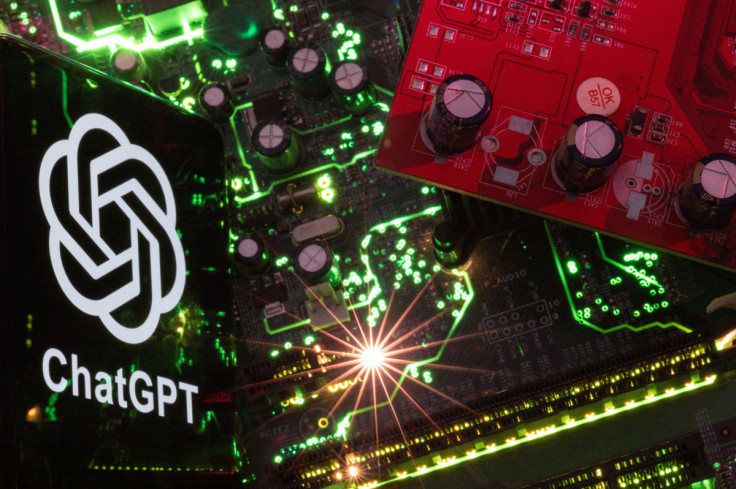ChatGPT could replace human jobs, OpenAI founder says
OpenAI founder Sam Altman said ChatGPT can eliminate human jobs in the coming days. Here are 20 jobs ChatGPT can replace.

OpenAI's ChatGPT has taken the tech realm by storm. As a result, tech giants are sparing no effort to come up with their versions of AI chatbots. To recap, Google recently allowed developers to access a ChatGPT-like generative AI.
As if that weren't enough, Apple Watch now supports ChatGPT with the help of an app called watchGPT. This app is available for download from the App Store. ChatGPT can efficiently provide extensive answers based on human cues. Some tech alarmists believe it could one day eliminate several current jobs.
ChatGPT likely to eliminate current jobs
In line with this, OpenAI CEO Sam Altman acknowledged that ChatGPT had put a slew of current jobs in jeopardy. Altman told ABC News that he is a "little bit scared" of ChatGPT's ability to eliminate existing human jobs. Aside from this, he expressed concerns over the possibility of the chatbot being used for harmful purposes, such as vicious cyberattacks and spreading disinformation.
Although the AI chatbot is currently in human control, Altman admitted there is a risk that some organisations and individuals may ignore putting these safety limits in place. He believes society only has limited time to regulate and control the possible impact of ChatGPT and similar AI technology.
OpenAI recently unveiled a more "creative and collaborative" version of the bot dubbed ChatGPT-4. Moreover, the company is rolling out a ChatGPT Plus subscription for users who want early access to GPT-4 and other new features. However, Altman warned that developing advanced AI could result in job displacement for people.
Although he believes humans can adapt to big technological shifts, Altman suggests rapid technological changes could pose some exceptional challenges. This indicates that AI technology is unpredictable and complex and can greatly impact society.
While AI can improve our lives, it comes with risks and challenges that humans need to address as soon as possible, according to a report by GizmoChina. It is worth noting that ChatGPT was created to help humans, but it has now become more powerful than expected. As a result, it could eventually replace a myriad of human jobs.
AI can take away these jobs from humans
Notably, GPT-4 can replace humans in 20 different jobs. Twitter user Prashanth Rangaswamy used GPT-4 to identify 20 current human jobs that it could replace. Furthermore, he prompted the AI to present the response in the "number, position, and human characteristic replace" format. Here are the 20 jobs that AI can replace.
- Data Entry Clerk
- Customer Service Representative
- Proofreader
- Paralegal
- Bookkeeper
- Translator
- Copywriter
- Market Research Analyst
- Social Media Manager
- Appointment Scheduler
- Telemarketer
- Virtual Assistant
- Transcriptionist
- News Reporter
- Travel Agent
- Tutor
- Technical Support Analyst
- Email Marketer
- Content Moderator
- Recruiter
Moreover, the GPT-4-backed ChatGPT revealed the replaceable human characteristics in the aforesaid jobs. These characteristics include interviewing and assessment, critical thinking and judgment, writing and targeting, troubleshooting, and problem-solving. Aside from this, AI could replace human traits like knowledge and teaching, planning and coordination, fact-checking and writing, and listening and typing skills.
20 jobs that Chat GPT 4 will replace in the near future . Predicted by the AI itself . pic.twitter.com/wleOgij9E5
— Prashanth Rangaswamy (@itisprashanth) March 16, 2023
Other replaceable traits include multitasking and organization, persuasion and communication, time management, content creation and curation, creativity and writing, analytical skills, language proficiency, research and organization, mathematical skills, communication and empathy, speed, and accuracy. To recap, Twitter CEO Elon Musk recently tweeted that GPT-4 will not leave anything for us people to do.
A poll conducted by Resumebuilder.com revealed that nearly half of the US-based businesses have already started using ChatGPT in their company. Moreover, since these companies have reportedly started to use AI chatbots, the workers have been replaced. This was ahead of the GPT-4 launch. So, it is safe to assume that more businesses will adopt AI-based resources in the coming days.
© Copyright IBTimes 2025. All rights reserved.






















